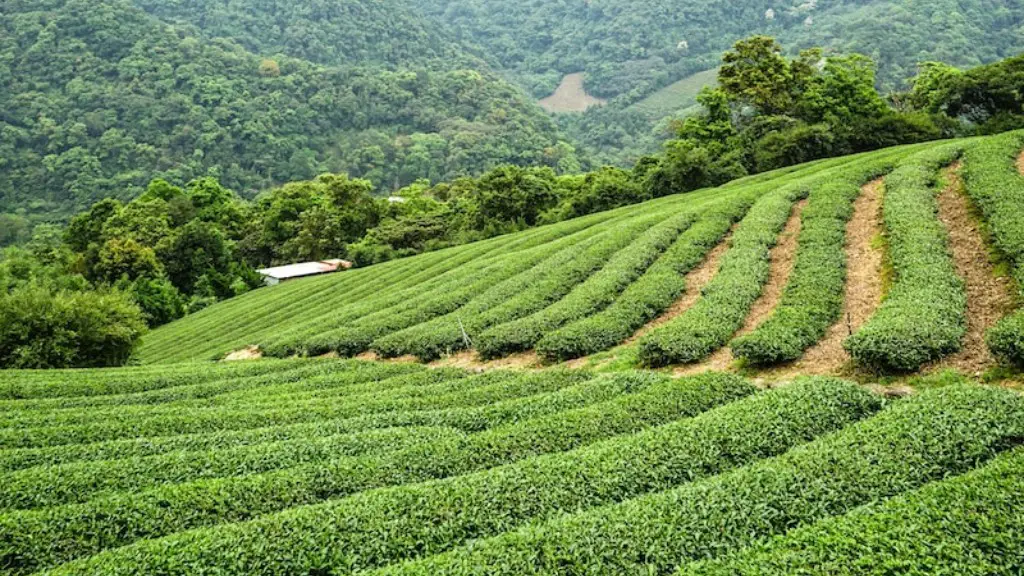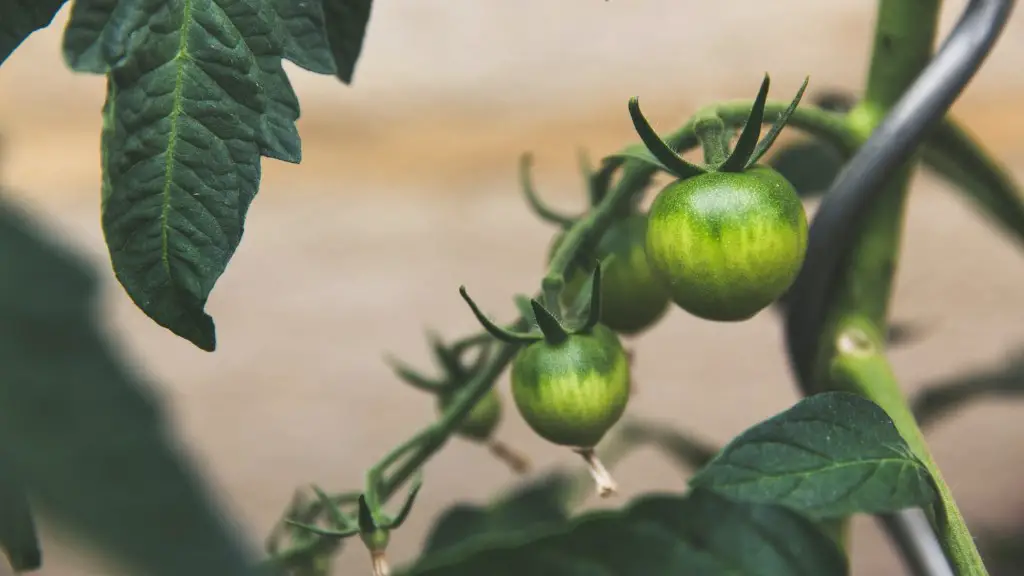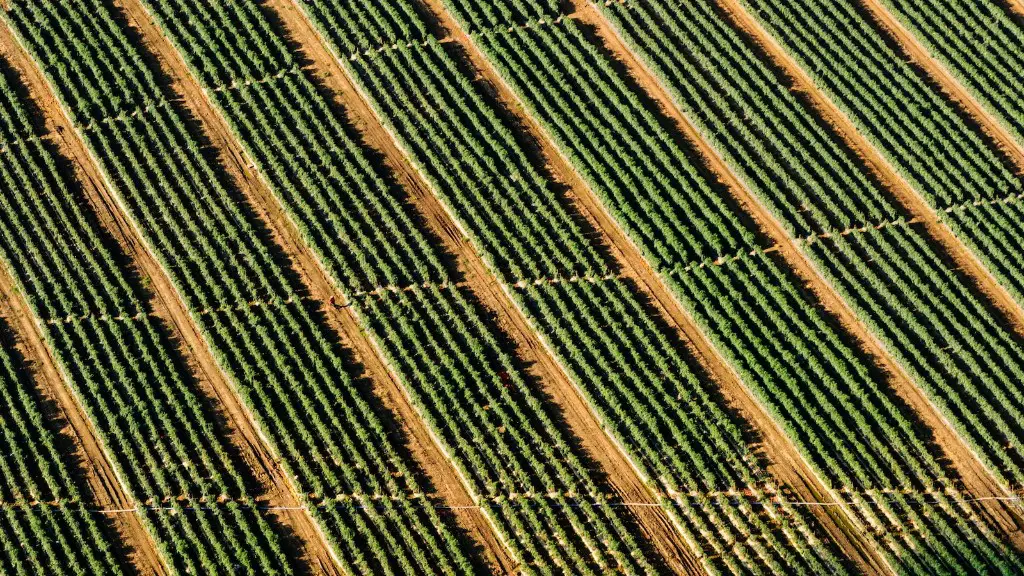Agriculture is a vital part of human civilization and its importance cannot be overstated. It provides us with many of the basic necessities, like food, clothing, and shelter. Without this practice, humanity could not have developed the societies and cultures that we have today. The characteristics of agriculture, therefore, are essential for understanding its importance and how to use it for a better future.
Agriculture relies on agriculturists, or farmers, to create and cultivate farms. The methods used vary depending on the type of crop and the environment, but they generally all involve land preparation, planting seeds, fertilizing, weeding, and harvesting. Agriculturists must also take into account market prices, local competition, and various variables that can affect the success of their operation.
Agriculture is also heavily reliant on technology to maximize efficiency and productivity. This includes soil-testing, pest management, irrigation, crop rotation, and other methods for boosting yields and minimizing losses. Technological advances, such as automated harvesting, provide even more opportunities to increase profitability.
Agriculture is, by nature, an interdisciplinary activity. Not only must agriculturists have knowledge of their own field, but they must also be aware of the various other disciplines, such as economics and biology, that are involved in order to ensure the most profitable operation. Therefore, an understanding of relevant laws, regulations, and market conditions is also essential.
Agriculture is an incredibly complex process, and its success and sustainability is greatly dependent on the management of resources. These resources include the land, water, and animals used for farming, as well as human labor, machinery, and farming supplies. Without careful management, the cost of production can become prohibitively high, and this puts a strain on the agriculturists’ income.
Finally, modern agriculture is heavily dependent on sound environmental practices. This means choosing sustainable farming methods, such as crop rotation, that do not deplete the soil or use excessive amounts of water. Additionally, many farmers must take into account how their activities can affect the wildlife and other ecosystems in the area. In this way, agriculturists must be aware of the impact they have on their environment and strive to reduce their impact.
Overall, agriculture is an incredibly complex and multifaceted practice that requires knowledge, skill, and dedication in order to be successful. From the agriculturist to the resources used, to the protection of the environment, there are many aspects that must be taken into consideration when it comes to agriculture. Only through a detailed understanding of these characteristics can we make sure that agriculture remains a viable practice for generations to come.
Agro-Ecology
Agro-ecology increases the resilience of agricultural systems by taking into consideration the interactions between the environment, plants, animals, and people. Agro-ecology incorporates the principles of ecology, the dynamics of natural systems, and traditional agricultural knowledge to create a more sustainable food production system. Agro-ecology focuses on traditional practices such as crop rotation and composting, as well as modern technologies and practices such as drip irrigation and artificial intelligence. By utilizing all of these aspects, agro-ecology increases the productivity and sustainability of food production systems.
Soil Fertility
Soil fertility is an essential element of successful agricultural production. It enables agricultural land to produce the highest yields possible, while providing the necessary nutrients to support healthy crop growth. Maintaining soil fertility requires an understanding of local soil characteristics, as well as other factors such as soil management, climate, and crop rotation. Soil fertility also relies on the use of soil amendments such as nitrogen, phosphorus, and potassium to improve nutrient levels, as well as organic matter to increase water retention and nutrition. By examining the characteristics of soil fertility, agriculturalists can create efficient and sustainable farming techniques that utilize available resources to the fullest.
Efficiency of Inputs
Agricultural inputs such as fertilizer, pesticides, and fuel must be used efficiently in order to reduce the cost of production. Efficiency of inputs is dependent on accurately predicting crop yields and making use of the most effective input for a particular crop or farm. By using the most cost-effective inputs for a given situation, agriculturalists can maximize their returns by minimizing the amount of money spent on resources. Additionally, identifying potential pests and planning preventive measures to keep them from infesting crops is essential in order to reduce the cost associated with pest control.
Social Impact
Agriculture impacts far more than just the environment and production. Social structures, economic stability, and culture are all affected by this practice. Agriculture is the main source of income for many communities and can be a driving force for economic growth. Additionally, its impact on cultural identity is powerful, as it is often heavily associated with language, religion, social norms, and traditions. Therefore, agriculturists must take into account the social and cultural implications of their activities and strive to ensure that they are beneficial to the community as a whole.
Technology and Innovation
Technology and innovation are essential in keeping agriculture productive and profitable. Technological advances, such as the use of drones for precise crop management, or robots for harvesting, help to increase efficiency and reduce costs. Additionally, innovative approaches to agriculture, such as vertical farming or hydroponic systems, can provide viable alternatives to traditional farming methods. By taking advantage of available technology and exploring the possibilities of the future, agriculturists can ensure their practices remain profitable and sustainable.
Trade and Markets
The global marketplace is an important factor in the success of agriculture. By understanding global trade trends and regulations, agriculturists can maximize their profits and gain access to new markets. They must also be aware of possible trade barriers, such as tariffs or quotas, which can limit their access to certain markets. Additionally, local markets are also essential for agricultural products, and farmers must understand local demand in order to make their operations profitable.



